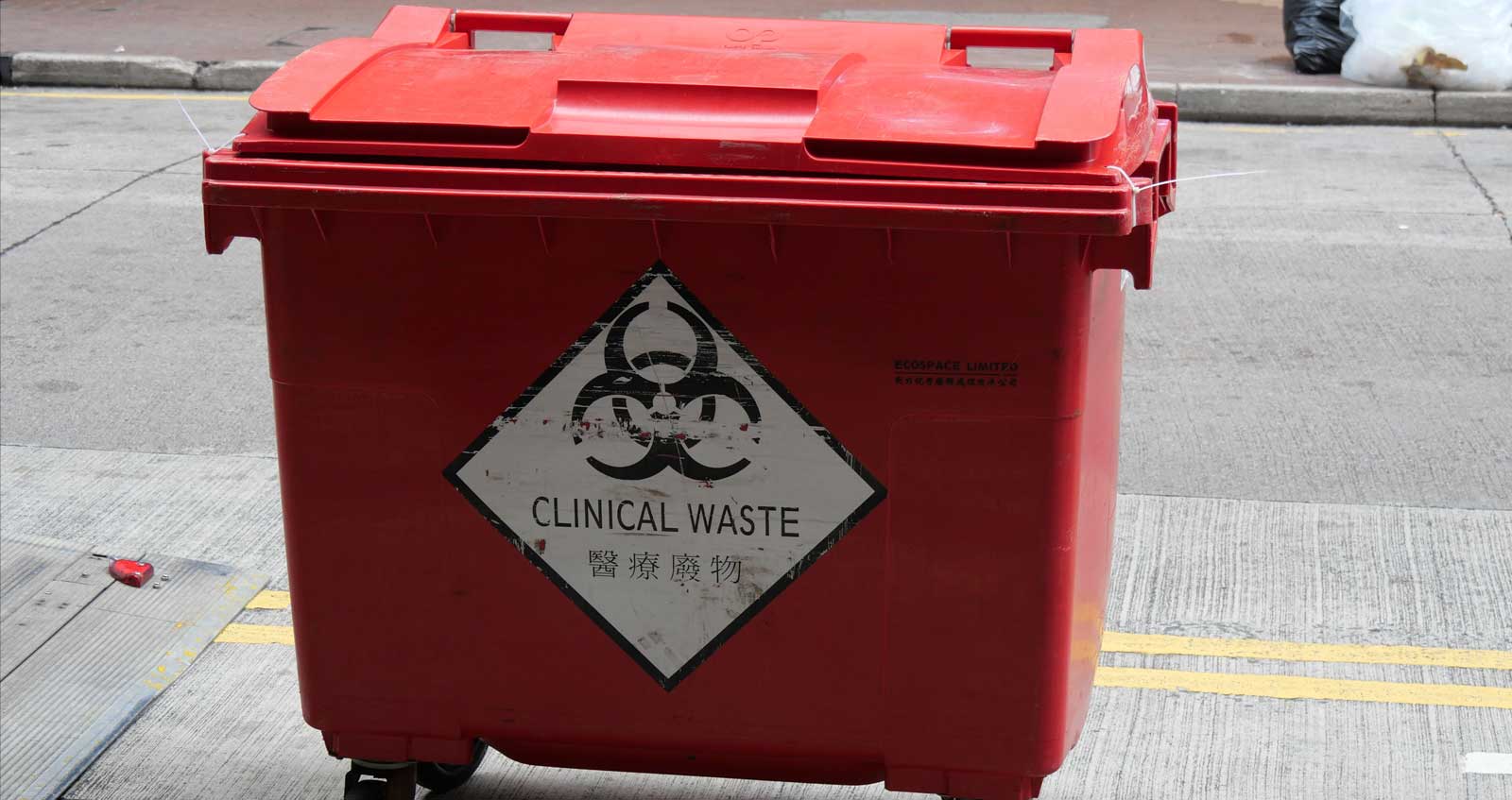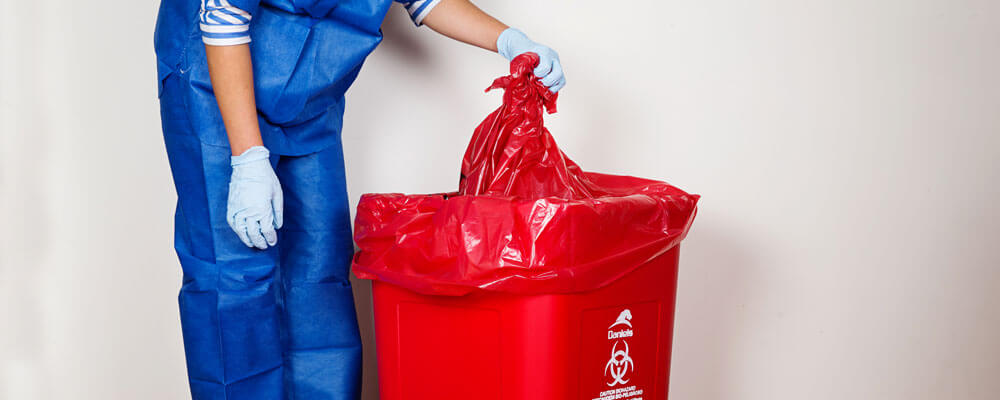Area Care: Seamless and Reliable Medical Waste Removal Near Me
Area Care: Seamless and Reliable Medical Waste Removal Near Me
Blog Article
The Importance of Proper Medical Garbage Disposal: A Guide for Healthcare Facilities
Appropriate medical waste disposal is a crucial element of healthcare center management, making certain the security and well-being of clients, team, and the setting. From recognizing the different classifications of medical waste to complying with regulatory requirements, health care facilities should adopt reliable waste segregation methods and choose ideal disposal techniques.
Understanding Clinical Waste Categories
Understanding clinical waste groups is important for correct disposal in health care centers. Medical waste is a wide term that incorporates different kinds of waste created in medical care settings, such as labs, clinics, and health centers. Categorizing medical waste helps make sure that it is handled, kept, and disposed of safely and according to relevant laws.
There are a number of categories of medical waste that health care facilities need to be knowledgeable about. These groups consist of infectious waste, sharps waste, pharmaceutical waste, chemical waste, and contaminated waste (medical waste disposal services with WasteX). Each category has details characteristics and needs different disposal approaches to minimize the risk of injury to healthcare workers, clients, and the environment
Infectious waste, for example, refers to throw away infected with possibly infectious materials, such as blood, body liquids, and tissues. Pharmaceutical waste consists of ended or extra medicines, while chemical waste consists of harmful chemicals used in clinical procedures.
Compliance With Regulatory Demands
Health care centers must ensure compliance with governing requirements for correct clinical waste disposal. Governing bodies, such as the Epa (EPA) and the Occupational Security and Health And Wellness Administration (OSHA), have actually established guidelines and laws to secure public wellness and the atmosphere. These policies lay out the appropriate handling, storage, transportation, and disposal of medical waste.
Conformity with governing demands is essential for health care centers to stay clear of lawful fines, reputational damages, and possible harm to human health and wellness and the setting. Failing to adhere to these laws can result in fines, suits, and also the suspension or abrogation of running licenses.
To guarantee conformity, health care centers must develop comprehensive waste management programs that consist of team training, proper waste segregation, and using proper containers and tags. Routine audits and assessments need to likewise be carried out to determine any non-compliance issues and resolve them immediately.
It is necessary for medical care centers to keep up to date with changes in laws and upgrade their waste management techniques as necessary. This can be achieved by proactively keeping an eye on updates from regulatory bodies and joining training programs and workshops.
Applying Effective Waste Segregation Practices
To ensure correct medical garbage disposal, medical care centers have to carry out effective waste segregation practices. Waste segregation is a crucial action in the total waste administration process, as it assists minimize the risk of infection, prevents cross-contamination, and makes certain the safe disposal of various types of waste. Effective waste segregation methods include separating medical waste into different classifications based upon its features and possible threats.
One common technique is the segregation of sharps waste, such as needles and scalpels, from other types of clinical waste. Sharps waste need to be put in puncture-resistant containers to protect against injuries and possible infections. In addition, hazardous waste, such as chemicals and drugs, ought to be separated from basic clinical waste to stop environmental contamination.
Correct labeling and color-coding of waste containers are necessary for efficient waste partition. Clear and noticeable tags need to be put on each container to indicate the type of waste it has and any kind of special handling demands - medical waste disposal services with WasteX. In addition, color-coding can be made use of to differentiate between different waste classifications, making it less complicated for health care team to recognize and dispose of waste correctly
Routine training and education and learning for medical care team is critical for the successful execution of waste segregation methods. Staff participants must be informed on the different waste categories, correct segregation techniques, and the relevance of adhering to waste monitoring methods. This will help make sure conformity and uniformity in waste partition practices throughout the facility.
Finding Appropriate Disposal Techniques
Proper selection of suitable disposal techniques is vital in making certain the secure and eco responsible management of medical waste in healthcare centers. Health care facilities generate a selection of clinical waste, including sharps, infectious waste, pharmaceutical waste, and chemical waste - medical waste removal services. Each kind of waste calls for specific disposal methods to reduce the risk of contamination, injury, and ecological harm
One common disposal method for medical waste is incineration. Incineration involves the controlled burning of waste at heats. This technique works in ruining pathogens and decreasing the volume of waste. It can release dangerous contaminants right into the air if not correctly regulated.

Chemical sanitation is one more method utilized for sure kinds of medical waste, such as pharmaceutical waste. This approach utilizes chemicals to reduce the effects of or damage pollutants. It is essential to pick chemicals that are safe and environmentally friendly.
In some cases, garbage dump disposal may be appropriate for non-hazardous clinical waste (medical waste disposal services with WasteX). Appropriate segregation and packaging are essential to avoid leakage or contamination.
Ultimately, medical care centers must thoroughly evaluate the characteristics of their medical waste and select suitable disposal techniques that focus on safety, environmental management, and regulatory compliance. Regular training and monitoring are necessary to make certain that health care check my source staff adheres to appropriate disposal procedures.

Training and Educating Personnel on Proper Disposal Treatments
Staff education and training play a crucial role in ensuring the appropriate disposal of clinical waste in medical care centers. It is crucial that all staff members, consisting of doctors, nurses, specialists, and support team, get comprehensive training on proper disposal procedures. This training ought to cover the various sorts over here of clinical waste, their prospective dangers, and the ideal approaches for handling, segregating, and taking care of them.
Among the primary objectives of team education and learning and training is to ensure that all medical care professionals recognize the significance of proper disposal treatments and the possible consequences of inappropriate waste management. They need to be familiar with the threats related to medical waste, such as the transmission of infections and the contamination of the atmosphere. medical waste removal service. By recognizing these threats, team member will certainly be extra determined to adhere to appropriate disposal methods and take the required precautions to shield themselves, their coworkers, and the area
Training should additionally cover the usage of personal safety tools (PPE) and the appropriate strategies for taking care of clinical waste. Team member need to be enlightened on just how to recognize and set apart various kinds of waste, such as sharps, transmittable waste, and unsafe chemicals. They should additionally be trained on the correct usage of waste containers, such as sharps containers and biohazard bags, along with the relevance of labeling and securing these containers properly.
Furthermore, staff education and learning and training must consist of normal updates and refresher course courses to make sure that health care experts stay informed about the current guidelines and finest methods in medical waste disposal. This ongoing education and learning is vital to keep a high degree of understanding and compliance among staff participants.
Final Thought
To conclude, correct clinical waste disposal is of utmost value for health care facilities. Understanding the different categories of here medical waste and conforming with regulatory needs makes certain the security and wellness of both healthcare workers and the general public. Executing efficient waste segregation techniques and selecting suitable disposal approaches are crucial in avoiding the spread of contagious illness and securing the environment. Training and informing personnel on appropriate disposal treatments is vital for preserving a clean and risk-free health care center.
From understanding the various categories of clinical waste to abiding with regulatory demands, medical care facilities need to take on efficient waste partition methods and pick suitable disposal techniques. These classifications include infectious waste, sharps waste, pharmaceutical waste, chemical waste, and radioactive waste.To make sure appropriate medical waste disposal, health care centers have to execute efficient waste segregation practices. Waste segregation is a crucial step in the general waste management process, as it assists lessen the danger of infection, avoids cross-contamination, and ensures the risk-free disposal of different types of waste. Healthcare facilities create a range of medical waste, consisting of sharps, transmittable waste, pharmaceutical waste, and chemical waste.
Report this page